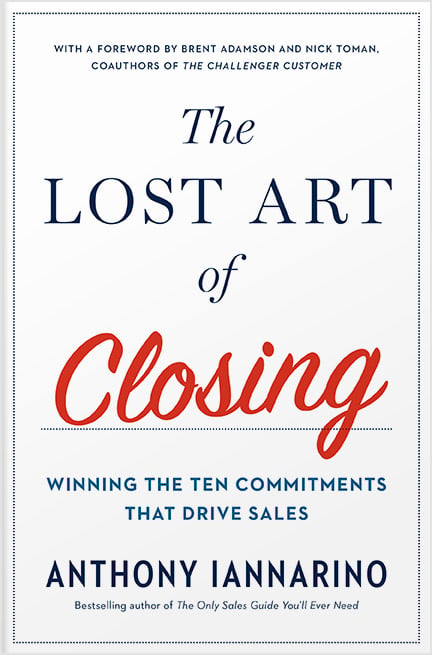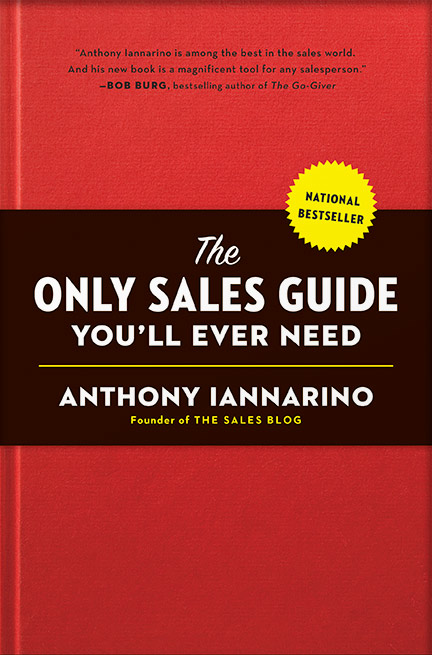Of all the many things that bother salespeople, one that seems to dominate their attention (and emotions) is when their prospect goes dark after what they believed was an excellent first meeting. The Lost Art of Closing will surely help you string together the commitments you need to prevent your client from going dark and your need to chase them. It might also be worth taking a look look in the mirror to understand the unparalleled hypocrisy of ghosting your dream client.No more pushy sales tactics. The Lost Art of Closing shows you how to proactively lead your customer and close your sales. 
Before You Accuse Me Take a Look At Yourself
It’s hard to tell who ghosted who first. Did salespeople go dark on clients first, or was it the other way around? Either way, salespeople are as guilty of going dark as their prospective clients. Perhaps it makes sense to work on not ghosting your clients, something that is wholly in your control. Here are some of the ways you ghost the very prospects about whom you sometimes complain.
When You Stop Pursuing Your Dream Client
You have called your dream client for years. They have never agreed to a meeting, and your competitor has them locked down tight. Occasionally, however, they take your phone call, and you sense they aren’t one hundred percent satisfied (and it’s not just your natural salesperson’s optimism). As the conversation goes on, your dream client again refuses your request for a meeting, even though you can tell you were close. And then, “poof!” You disappear without a trace for months or years. If you don’t continue the communication and the pursuit with a patient, professional, persistence, you have gone dark.
Every salesperson has the experience of calling on a prospect for a long time, giving up and going away for an equally long period, only to call and discover their dream client removed their partner and replaced them—without even considering the salesperson who gave up (i.e., went dark).
When You Fail to Follow Up with a Client
You had an excellent first client meeting. You took outstanding notes, capturing all of the questions your dream client asked you in that meeting, along with some notes about what you owe them. You get back to your office, open your inbox (a place where you spend too much time), and become distracted by this thing or that. The next day, you have deadlines and meetings, and you forget all about the promise you made, a promise your client remembers.
Because you don’t have a disciplined process to manage your goals, projects, and tasks, it is two weeks before you provide your dream client with what you promised them. Or maybe you promised to call your dream client to follow up on a question or concern and become overwhelmed and forgot.
Whatever the cause or circumstance, you went dark on your client. What’s worse is you gave them a preview of working with you, were they to ink a contract with you and your company.
When You Win the Deal and Disappear
You energetically pursued your dream client, finally acquiring a meeting. You worked very hard to distinguish yourself, showering them with attention, and wooing them to win their business. You are an excellent salesperson, creating massive value for them, and all the stakeholders are excited to work with you and your company. Everyone is happy about signing the contract and moving forward.
And then, the dream client you worked so hard to obtain doesn’t see or hear from you again until it is sixty days from the expiration date of your contract. It feels awkward to show up after going dark for so long. Your client has a different opinion, now believing you are self-oriented, and you are only there to get a deal, not to help them solve their intractable problems like you did when you were courting them.
What does your dream client believe will happen after they renew the contract? The last time they signed a contract, you provided disappearing ink. As soon as they signed the contract, you disappeared.
Hiding From Problems You Created
In The Only Sales Guide You’ll Ever Need, there is a chapter at the end of the first half of the book on accountability. Accountability is your willingness to deliver the outcomes you sold and promised. It is also one of the characteristics that distinguish true professionals from the poseurs.Learn Anthony's core strategies & tactics for sales success at any level with The Only Sales Guide You'll Ever Need
Shortly after winning your dream client’s business, they run into trouble executing, and they struggle to produce the outcome you promised. This failure is not your fault. It is your operations team who is dropping the ball. You take an angry call from one of your contacts, and you make a call to someone on your side, handing off the problem to people who own the resolution. Having given that problem to your team, you wash your hands of it, and you move on.
Your client continues to struggle over the next three or four weeks without you being present or available to help them. One day, you are greeted by an email telling you that your dream client is canceling your contract.
Instead of owning the outcome, following up, and making sure your team had direction and resources, you went dark on your client. Worse still, you went dark on the group that you want to have your back.
When You Become Apathetic, Complacent or Entitled
Years have passed since you won your dream client’s business. Everything is working, and there isn’t any real reason to have a meeting. If there were a problem, you’d have heard about it. As time drifts by, you and your dream client both become apathetic, complacent. Neither you or they are compelled to do something different.
While you are sleeping, your aggressive competitor starts to make inroads. They found a couple of people lower in the organization who are compelled to change, and your competitor is arming them with the ideas and insights they need to make a change. You know you, competitor, well enough to know that there is nothing they can do that you can’t also do. However, the problem is that they are doing working to create new value, and you feel entitled to the business by the nature of your long relationship.
The best retention strategy is the creation of new value, something you haven’t even tried to do for some number of years. Now your client has given a piece of your business to your competitor, and you are unhappy with the decision, a decision that was the result of your going dark.
If you don’t like it when your dream client goes dark, don’t go dark on them. You may not be able to control when your prospect or dream client goes dark, but it is within your control not you ghost them.








.jpg?width=768&height=994&name=salescall-planner-ebook-v3-1-cover%20(1).jpg)


